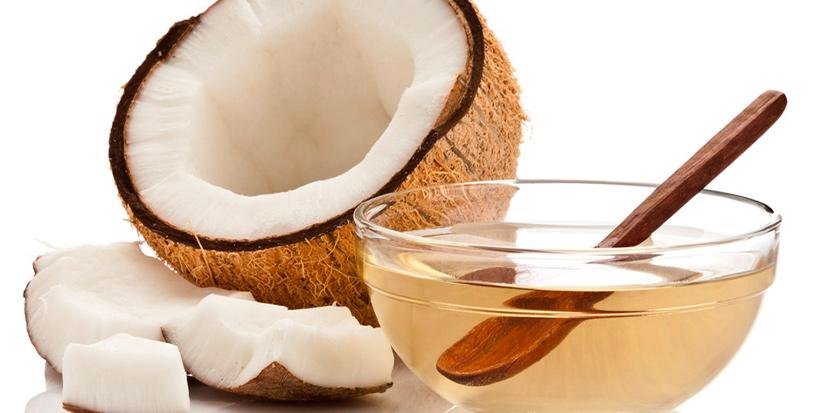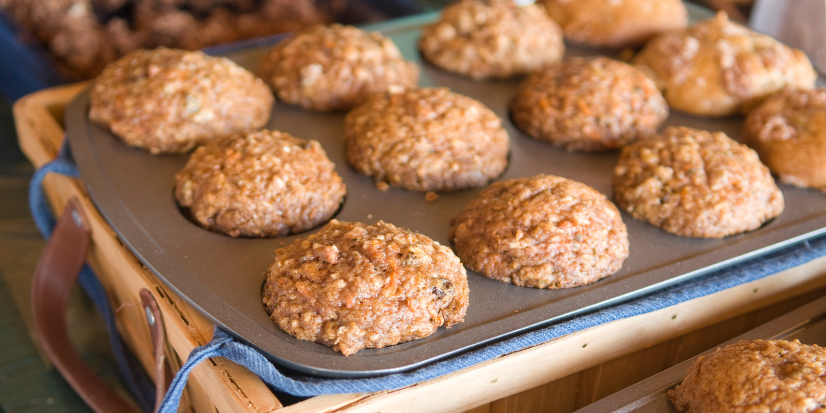“72 percent of Americans think that coconut oil is a healthy oil to be used for cooking, yet only 37 percent of nutrition experts agree.” -The New York Times
There are three kinds of people in this world. People that use coconut oil religiously, people that believe coconut oil is “bad for you” and people that just have no idea what to think of it so they stick to butter and/or olive oil.
Nonetheless, the demand for coconut oil has skyrocketed in the past decade, likely due to the higher fat, lower carb diet trend, as well as coconut oil’s fatty acid profile. Claims have been made that coconut oil is a healthy substitute for a variety of other cooking oils; however, many still believe that it poses a health concern since 92 percent of its composition is saturated fat.
What most people don’t know is that not all saturated fat is created equal. There are a variety of fatty acids that make up saturated fats, with some being more beneficial or harmful than others.
Fat Basics
In order to better understand why coconut oil is all the rave, one must understand the fundamentals of fat. There are essentially three types of fat: saturated, unsaturated, and trans fats. All fats are made of fatty acids (carbon-hydrogen chains), which are categorized by how long they are (based on the number of carbons) and whether or not these chains contain double bonds. Saturated fats have no double bonds, while unsaturated fats have one (monounsaturated) or more (polyunsaturated) double bonds.
Coconut oil has become increasingly popular because its purported health benefits appear to be related to its high content of medium-chain fatty acids (MCFAs). Simply put, medium-chain fatty acids are basically medium-sized fat molecules or structures. MCFAs are always saturated and contain 6-12 carbons, while long-chain fatty acids (LCFAs) contain 13 carbons or more. Whether a fatty acid chain has more or less than 12 carbons matters significantly because the body finds it easier to absorb short- and medium-chain fatty acids. Their smaller chain lengths allow them to bypass the fat storage pathway and, as a result, are sent directly to the liver to rapidly become energy for the brain and muscles. As a result, coconut oil is in high demand (especially for athletes) because it is the largest food source of MCFAs, a quick source of energy.
MCT Oil
If you’ve never heard of the previously discussed MCFAs, chances are you may have heard of MCT (medium-chain triglyceride) oil. The fatty acids found in MCT oil are almost exclusively MCFAs. Almost 100% of the fatty acids found in MCT oil are MCFAs, which are quickly converted into fuel for the body to use. Besides MCT oil, other good sources of MCFAs include coconut oil, palm oil well as grass-fed butter, cheese, whole milk, and full-fat yogurt.
Coconut Oil Composition
Coconut oil is composed of both medium-chain fatty acids and long-chain fatty acids. Approximately 62 percent of coconut oil’s fatty acids are MCFAs (medium chains), with the remaining being LCFAs (long chains). For some reason, many confuse the composition of coconut oil with MCT oil, yet they are not identical. You could say they are like cousins—some of their “DNA” matches, but not all of it. Though coconut oil has MCFAs in it, MCT oil is more concentrated and is nearly 100 percent MCFAs.
The big debate on whether or not coconut oil is beneficial to our health arises from the ratio of medium-chain fatty acids to long-chain fatty acids. This is because MCFAs raise both HDL (“good”) and LDL (“bad”) cholesterol. Therefore, it is important to note that coconut oil is not a “win-win” situation when it comes to improving cholesterol levels.
Extra Virgin vs. Refined
Whether it is olive or coconut oil, extra virgin (unrefined) is the better choice. Virgin oils are extracted from one pure source, therefore are less processed.
Refined oils, like canola, are purified via acid and contain fewer nutrients due to chemical processing. These oils are extracted from many sources. For instance, canola oil is an industrial product extracted from several cultivars of rapeseed. Some of these oils are chemically transformed into trans fats during this combination process. In fact, researchers at Health Canada found that canola oil contained the most trans-fat at 2.4 percent when compared to other refined oils. The processed food industry considers refining these oils essential to preserve their sensory value, so they sacrifice health for things like texture, scent, and visual appeal.
Smoke Point: Choosing the Right Fat
When it comes to cooking, the type of fat you choose matters. Assessing the smoke point of fats is a critical part of healthy cooking. The smoke point is the temperature at which fat starts to burn and smoke. When you cook foods with a fat that’s been heated beyond its smoke point, not only do you end up with a burnt flavor, but you destroy beneficial nutrients.
For very high temperatures (frying in a wok or searing meats), choose avocado oil; it won’t burn or smoke until it reaches 520F! For mid-temperature cooking, use virgin coconut oil, grass-fed butter, or virgin olive oil. Choose extra virgin olive oil for salad dressings or already cooked foods, but do not use it for high heat cooking.
- High-temperature cooking – Broiling – Avocado Oil
- Medium temperature cooking – Sauté – Coconut Oil, Butter, Virgin Olive Oil
- Low-temperature cooking – Salad Dressings – Virgin Olive Oil
Coconut Oil vs. Butter
Both coconut oil and butter are significantly high in (saturated) fat, therefore very high in calories. The bottom line is that each has its place in cooking and neither one is superior to the other. When it comes to cooking, they both have the same smoke point so choosing one or the other depends on the flavor profile you’re looking for. If you’re making a curry or stir fry, coconut oil might be your best bet, while you might want to stick with butter to make a delicious chicken piccata.
Pros (+) and Cons (-)
Coconut Oil
- Antibacterial properties
- Anti-inflammatory properties
- Hair and skincare
- Source of antioxidants
- Minimally processed (extra virgin)
- A greater source of MCFA’s
- Slightly more calories
Grass-Fed Butter
- Less saturated fat
- More unsaturated fat
- Packed with vitamins A, E, and K
- Anti-inflammatory properties
- Provides more long-lasting energy
- Composed of palmitic acid, which is associated with plaque build-up
- Can be salted; look for unsalted, grass-fed butter
Dietitian Takeaway

Coconut oil can be used in a variety of ways. While many use coconut oil for cooking or baking, coconut oil can be found in a variety of lotion and soap products due to its antibacterial, antioxidant, and anti-inflammatory properties. These properties are just a few reasons why coconut oil has become increasingly popular over the last few years. Another reason includes its fatty acid composition. Coconut oil is a good source of medium-chain fatty acids, which can be converted into quick energy to fuel the brain and muscles.
Nonetheless, coconut oil should not be considered a “superfood” as it has its downfalls. Like other fats, coconut oil is very high in fat and calories, therefore it should be used sparingly to cook and flavor foods. Some may confuse coconut oil and MCT oil, though they certainly have their differences. MCT oil is almost entirely composed of medium-chain fatty acids, providing quicker, more efficient energy. On the other hand, MCT oil is typically unflavored and more expensive. It may also cause digestive issues if consumed in large quantities, so one should start with small doses if considering this product. Consuming 1 tbsp (20g) of pure MCT oil, or 5 tsp of virgin coconut oil, 1-3 times/day with food is the current research-supported supplementation protocol.
At the end of the day, our diets should be comprised of primarily unsaturated fats from natural sources like nuts, seeds, olives, and avocados, while leaving a spot at the table for saturated fats like coconut oil, as they truly do come with some health benefits… and tons of flavor, of course.







